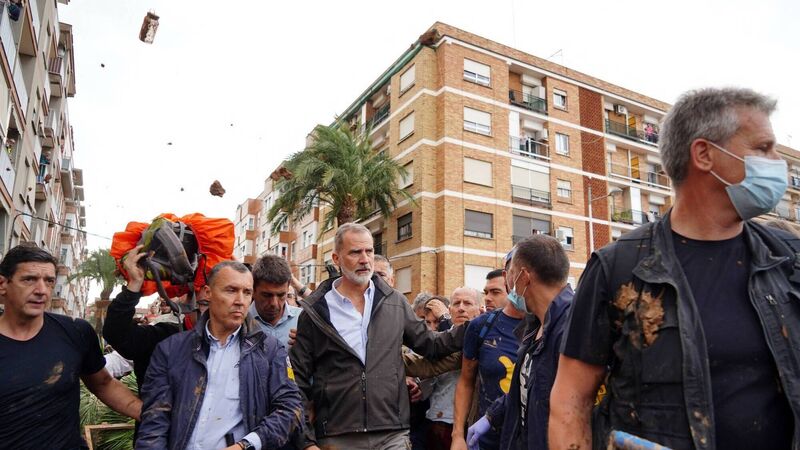Eamon Ryan: Climate is an election issue — we can't give up on the world

King Felipe VI of Spain being heckled by angry residents during his visit to in the region of Valencia, eastern Spain, in the aftermath of devastating floods. We must build new financial architecture because we are all equally threatened. As we saw in Valencia, no place is safe, we are all on the same frontline.















